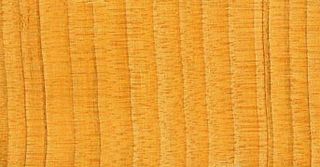A nocturnal emission, also known as a wet dream, sex dream, nightfall, or sleep orgasm, is a spontaneous orgasm during sleep that includes ejaculation for a male, or vaginal lubrication and/or an orgasm for a female.
In its primary meaning, the Hebrew word mitzvah refers to a commandment commanded by God to be performed as a religious duty. Jewish law in large part consists of discussion of these commandments. According to religious tradition, there are 613 such commandments.

Mikveh or mikvah is a bath used for the purpose of ritual immersion in Judaism to achieve ritual purity.
A niddah, in traditional Judaism, is a woman who has experienced a uterine discharge of blood, or a woman who has menstruated and not yet completed the associated requirement of immersion in a mikveh.

In Judaism, ritual washing, or ablution, takes two main forms. Tevilah (טְבִילָה) is a full body immersion in a mikveh, and netilat yadayim is the washing of the hands with a cup.
Niddah is a masekhet or tractate of the Mishnah and the Talmud, and is part of the order of Tohorot. The content of the tractate primarily deals with the legal provisions related to Halakha of Niddah.

Metzora, Metzorah, M'tzora, Mezora, Metsora, M'tsora, Metsoro, Meṣora, or Maṣoro is the 28th weekly Torah portion in the annual Jewish cycle of Torah reading and the fifth in the Book of Leviticus. The parashah deals with ritual impurity. It addresses cleansing from skin disease, houses with an eruptive plague, male genital discharges, and menstruation. The parashah constitutes Leviticus 14:1–15:33. The parashah is made up of 4,697 Hebrew letters, 1,274 Hebrew words, 90 verses, and 159 lines in a Torah Scroll.

Berakhot is the first tractate of Seder Zeraim of the Mishnah and of the Talmud. The tractate discusses the rules of prayers, particularly the Shema and the Amidah, and blessings for various circumstances.
In Jewish law, ṭumah and ṭaharah are the state of being ritually "impure" and "pure", respectively. The Hebrew noun ṭum'ah, meaning "impurity", describes a state of ritual impurity. A person or object which contracts ṭumah is said to be ṭamé, and thereby unsuited for certain holy activities and uses until undergoing predefined purification actions that usually include the elapse of a specified time-period.
In Jewish ritual law, a zav is a man who has had abnormal seminal discharge from the male sexual organ, and thus entered a state of ritual impurity. A woman who has had similar abnormal discharge from her genitals is known as a zavah.
The House of Hillel and House of Shammai were, among Jewish scholars, two schools of thought during the period of tannaim, named after the sages Hillel and Shammai who founded them. These two schools had vigorous debates on matters of ritual practice, ethics, and theology which were critical for the shaping of the Oral Law and Judaism as it is today.
The Hebrew term kareth, or extirpation, is a form of punishment for sin, mentioned in the Hebrew Bible and later Jewish writings. Kareth in its simplistic meaning refers to an individual being expelled from the Nation of Israel. In the Talmud, kareth means not necessarily physical "cutting off" of life, but can also mean the extinction of the soul and denial of a share in the world to come.
Forbidden relationships in Judaism are intimate relationships which are forbidden by prohibitions in the Torah or rabbinical injunctions.
In Jewish ritual law, a zavah is a woman who has had vaginal blood discharges not during the usually anticipated menstrual cycle, and thus entered a state of ritual impurity. The equivalent impurity that can be contracted by males, by experiencing an abnormal discharge from their genitals, is known as the impurity of a zav.
Jewish traditions across different eras and regions devote considerable attention to sexuality. Sexuality is the subject of many narratives and laws in the Tanakh and rabbinic literature.
Impurity of the land of the nations is a rabbinic edict stipulating a specified degree of tumah (impurity) on all lands outside the Land of Israel. The demarcation lines of foreign lands effectually included all those lands not settled by the people of Israel during their return from the Babylonian exile during the Second Temple period, and was meant to dissuade the priests of Aaron's lineage from venturing beyond the Land of Israel where graves were unmarked, and who may inadvertently contract corpse uncleanness and thereby eat their bread-offering (Terumah), unawares, in a state of ritual impurity and becoming liable thereby to kareth. The declaration with respect to foreign lands includes also the "virgin soil" of those lands, and was, therefore, a safeguard meant to prevent the priests from inadvertently transgressing the Law of Moses.
Hiyya bar Ashi was a second and third generation Amora sage of Babylon.
The prohibition of extracting semen in vain is a Biblical prohibition derived from, this is explained in the Midrash and Talmud. The prohibition forbids a male from intentional wasteful spilling of his semen. Unintentional wasting of seed is also a (lesser) sin according to the Oral Torah.
Rabbi Zeira's stringency or the stringency of the daughters of Israel relates to the law of niddah and refers to the stringency expounded in the Talmud where all menstruant women, at the conclusion of their menstrual flow, were to count seven days of cleanness, just as women would do who suffered an "irregular flow" as defined in Jewish law.

Jewish law and custom prescribe ritual hand washing in a number of situations. This practice is generally known by the Hebrew term נטילת ידיים, which literally means taking up of the hands.





